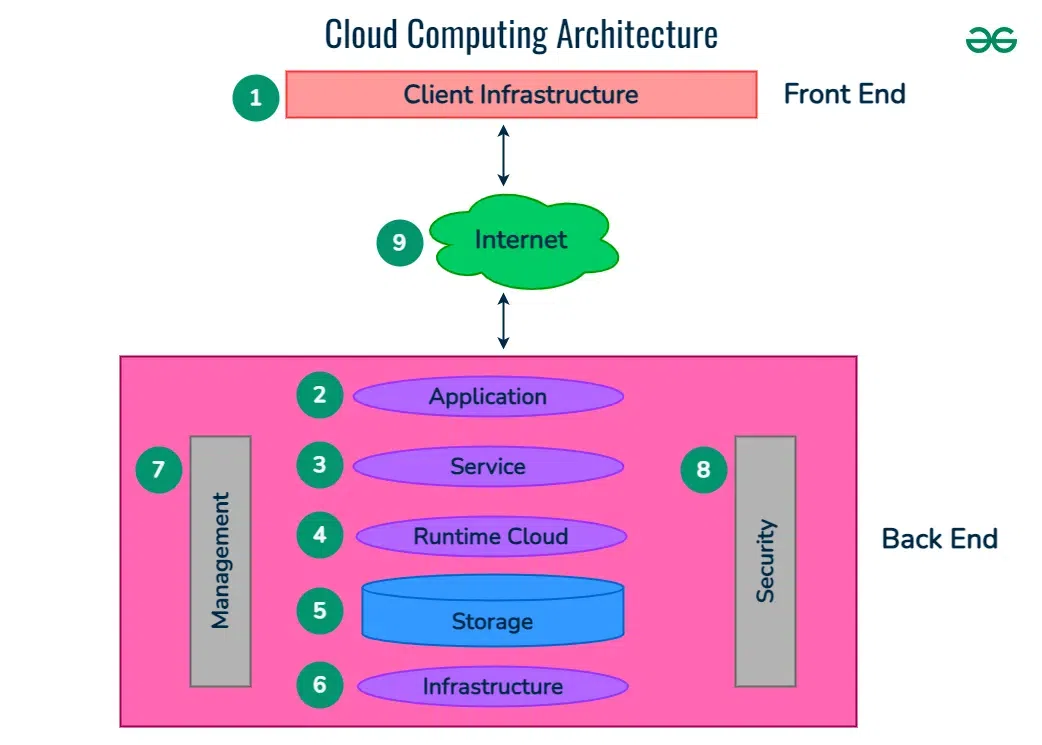Streamline IT Monitoring With Cloud Services
Cloud services have arised as a viable service for companies looking to boost efficiency, lower costs, and enhance total IT efficiency. How specifically do these cloud services reinvent typical IT administration methods? Let's explore the transformative effect of leveraging cloud solutions on IT operations and the crucial factors to consider for successful implementation.
Advantages of Cloud Services

Furthermore, cloud solutions allow companies to improve their operational efficiency by simplifying procedures and reducing the time and sources needed for managing IT facilities. With cloud services, businesses can automate regular tasks, such as software application updates and data back-ups, liberating IT teams to concentrate on more tactical initiatives that drive organization worth.

Improved Scalability and Flexibility
Cloud services provide companies with unparalleled scalability and flexibility in managing their IT resources effectively. With cloud services, services can quickly scale up or down their computing resources, storage capacity, and network data transfer to satisfy altering requirements without the requirement for considerable in advance financial investments in equipment.
In addition, cloud solutions supply the versatility for workers to accessibility firm information and applications from anywhere, at any moment, and from any kind of tool with a net connection. This capability enhances performance and cooperation amongst remote groups or workers working in different places. Furthermore, cloud services provide the adaptability to pick from a range of service designs, such as Framework as a Solution (IaaS), System as a Service (PaaS), or Software Application as a Service (SaaS), based upon the certain requirements of the service. The improved scalability and flexibility offered by cloud solutions equip services to enhance their IT operations and stay nimble in today's vibrant market atmosphere.

Cost-Effectiveness and Financial Savings
With the capacity to efficiently designate sources based on demand, organizations using cloud solutions can harness significant cost-effectiveness and realize considerable cost savings in their IT procedures. Additionally, cloud solutions decrease maintenance costs by changing the duty of equipment upkeep and software program updates to the solution company. Overall, the cost-effectiveness and financial savings accomplished through cloud solutions allow companies to reapportion resources in the direction of advancement and growth campaigns.
Improved Protection and Compliance
Enhancing the general security stance and guaranteeing regulatory compliance are paramount factors to consider for services leveraging cloud services in their IT monitoring methods. Cloud company use innovative safety and security procedures, such as information encryption, multi-factor verification, and automated back-ups, which can strengthen a business's safety structure. These suppliers additionally stick to stringent regulatory standards, such as GDPR, HIPAA, and PCI DSS, assisting businesses meet compliance requirements better.
Carrying out cloud solutions can boost safety by offering centralized control over gain access to administration, tracking, and information defense. This centralized method streamlines safety and security administration and makes sure regular application of safety plans across the organization. Cloud services usually supply real-time security updates and patches, reducing the risk of susceptabilities and potential violations.
Ideal Practices for Cloud Execution
Executing cloud services efficiently calls for a structured strategy that encompasses thorough preparation and thorough implementation. To ensure a smooth transition to the cloud, companies need to start by performing a detailed assessment of their existing IT great post to read infrastructure and identifying which workloads are suitable for movement. It is necessary to establish clear objectives and define crucial efficiency signs (KPIs) to measure the success of the cloud execution.
Among the most effective methods for cloud application is my blog to very carefully pick a cloud service provider that aligns with the company's needs in regards to safety, compliance, scalability, and cost-effectiveness. In addition, producing a thorough movement plan that lays out the steps included, timelines, and responsibilities is essential for an effective execution.
On a regular basis monitoring and enhancing cloud sources to ensure efficient performance and expense management is an additional vital aspect of cloud application best practices. Continuous examination of the cloud environment and staying educated concerning updates and new functions provided by the cloud company can even more enhance the company's cloud strategy. By adhering to these ideal techniques, organizations can improve their IT monitoring and optimize the advantages of cloud services.
Verdict
In final thought, leveraging cloud services for IT monitoring supplies many benefits, including boosted scalability, cost-effectiveness, enhanced safety and security, and compliance. Overall, cloud services improve functional performance and dexterity in managing IT facilities.
Furthermore, cloud solutions supply the flexibility to select from a variety of service versions, such as Infrastructure as a Solution (IaaS), Platform as a Solution (PaaS), or Software Program as a Solution (SaaS), based on the certain demands of the organization. In addition, cloud solutions lessen upkeep expenses by moving the duty of hardware upkeep and software updates to the service supplier.Enhancing the overall safety and security stance and making sure governing conformity are extremely important considerations for services leveraging cloud solutions in their IT management techniques.Consistently keeping you can try this out an eye on and maximizing cloud sources to ensure effective performance and price monitoring is an additional critical aspect of cloud execution ideal practices. Continual evaluation of the cloud setting and remaining notified regarding updates and new features supplied by the cloud company can better improve the organization's cloud strategy.